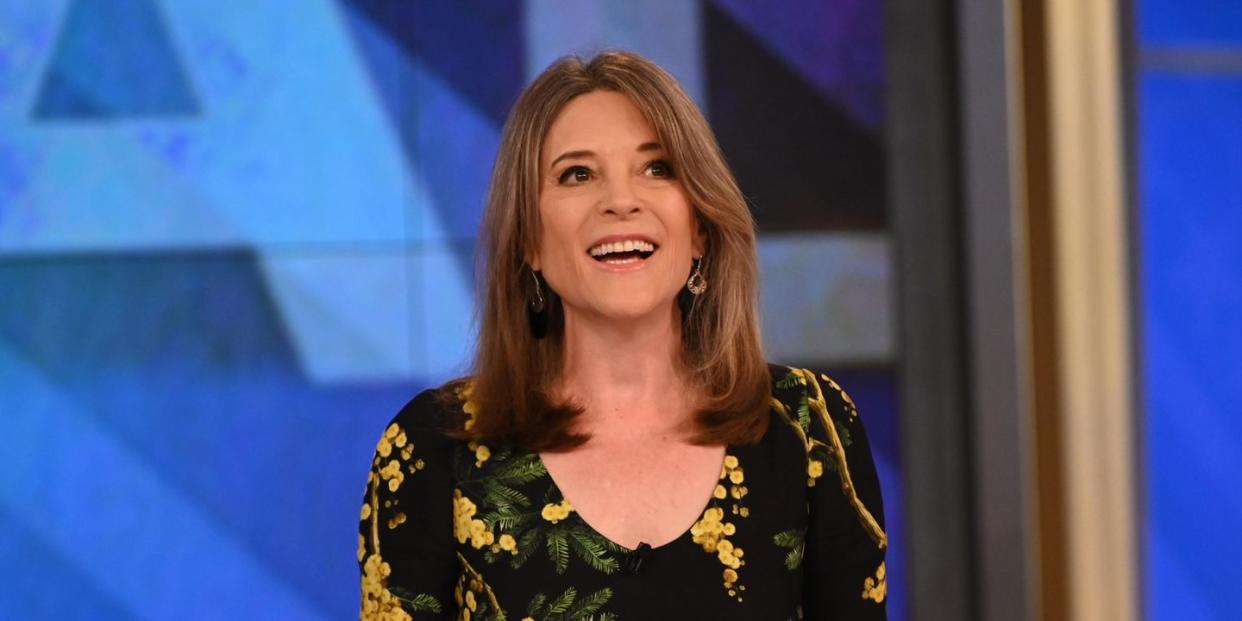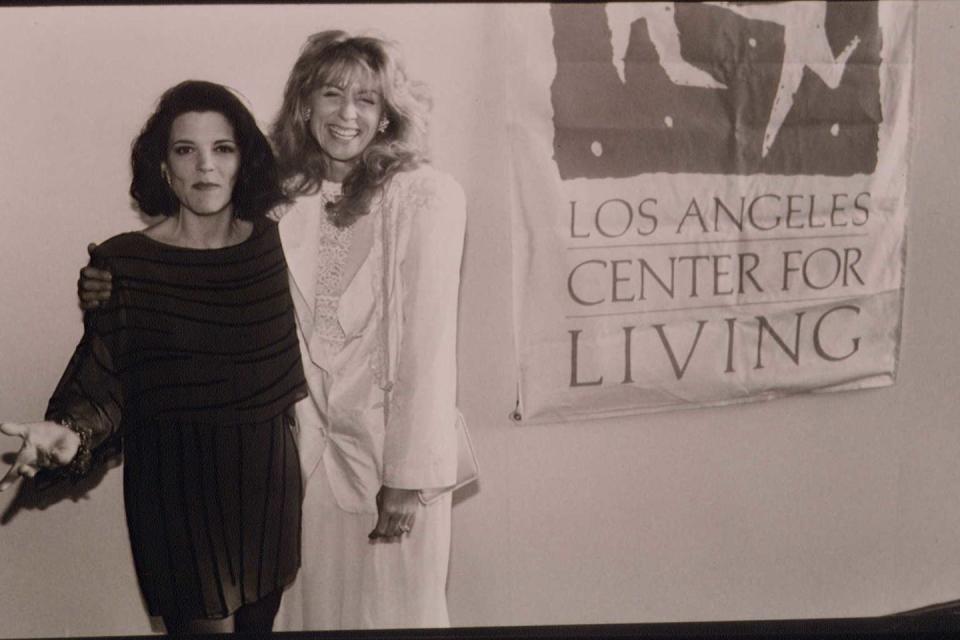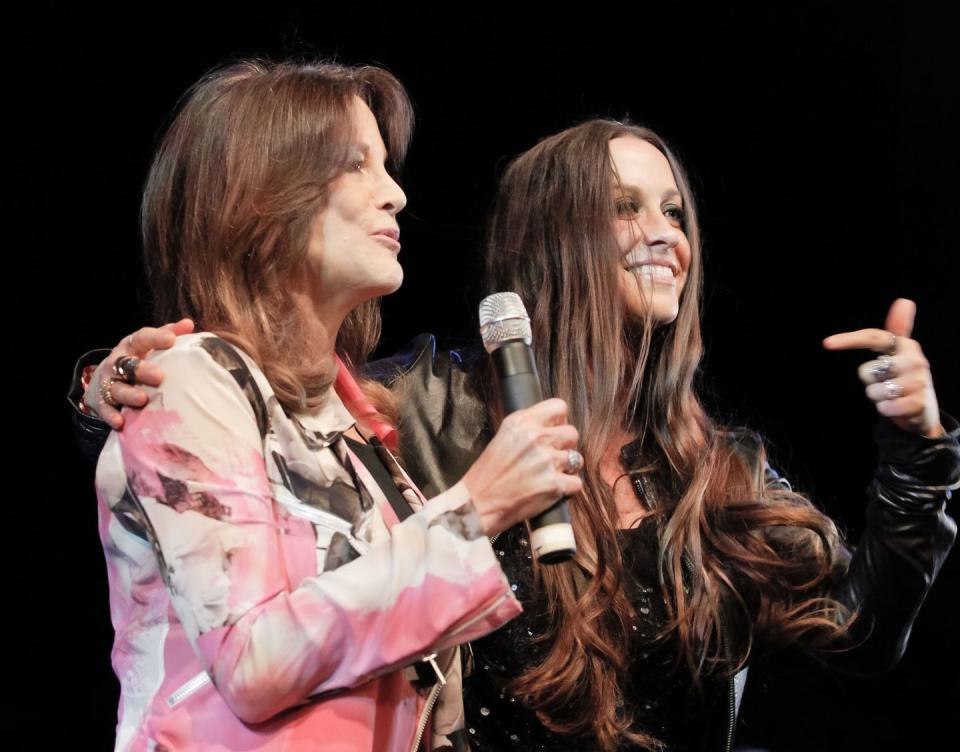The Toxic Allure of Marianne Williamson's Health-Based Politics

Democratic presidential hopeful and self-help guru Marianne Williamson is currently polling somewhere between 0 and 1 percent, but she has, nonetheless, triggered a tidal wave of orb memes and think-pieces with her peculiar blend of freeze-dried ‘90s spirituality and uncut progressive populism. Following Tuesday’s debate, where she won applause for lines on the Flint water crisis and reparations, she was the most Googled candidate.
As her debate performance made clear, Williamson is significantly more practiced than most other Democratic candidates at telling people what they want to hear. She’s skilled at voicing our underlying national pain points. So it’s not surprising that, in a primary dominated by convoluted questions over how to equitably administer healthcare, she has stood out for insisting that politics must address what’s making us sick.
But her views on the origin of illness have often reflected a growing conspiratorial mindset over actual fact. Williamson has vaguely and dangerously questioned vaccine safety in the past, and at a campaign event in June called mandatory vaccinations “Orwellian.” She has since apologized for the remark and insisted she is not anti-vaccine or “anti-science,” but in an MSNBC interview on Wednesday, she went ahead and loosely (and without evidence) linked vaccines to a rise in chronic disease. She also recently fumbled with the New York Times over her belief that anti-depressants are overprescribed and a past comment she made calling clinical depression a “scam.” She’s apologized for that particular assertion, but stood by her tweet linking the designer Kate Spade’s suicide, again without evidence, to anti-depressant use and Big Pharma.
Notions of illness and health, literal and metaphorical, drip across Williamson’s platform to an unusual degree (though at Wednesday’s debate, Andrew Yang, another long-shot candidate with a cult following, got a big applause line in when he pointed to rising rates of depression, anxiety, drug overdoses and suicide, and the recent decline in American life expectancy). And Williamson’s focus on holistic healing—her assertion that “we need to do more than figure out who is paying for whose disease”—might be speaking to a real, and growing (if definitely not vaccine-sickened), demographic of chronically ill Americans.
A post shared by Marianne Williamson (@mariannewilliamson) on Jun 20, 2019 at 4:15am PDT
As Slate has noted, Williamson’s speech leans on images of cells and pathogens and immunity, promising a society, and bodies, nurtured back towards optimal functioning. “The Trump agenda is like an opportunistic infection; It couldn’t have taken hold of us had we not had a weakened societal immune system,” Williamson wrote on Instagram in May. “And now all of us need to think of ourselves as immune cells in the body politic of our society.”
There is a satisfying poetry in this framing, though it lacks a rigorous understanding of the actual human immune system. Williamson’s health-based approach to politics is borne out of her career as a self-help author, where she operated in the blurry space between what we know, scientifically, about our health, and what even well-informed people—including, at times, me—may find ourselves quietly believing.

Williamson’s background in “personal transformation,” as she refers to it, is a minefield for the empirically-minded. She became famous giving talks on the 1975 book A Course in Miracles, a 1300-page scripture allegedly dictated to author Helen Schuman, a psychologist, by Jesus Christ himself. Echoing elements of Christian Science, the American “New Thought” movement, and the spiritual concept of nonduality, which has roots in Buddhist and Hindu traditions, “The Course” asserts that our most deeply held perceptions—including the notion that we have individual bodies—are an illusion, and that we are all expressions of one divine being. The body is a bad dream.
In this context, Williamson became known for her work with HIV/AIDS patients, through the nonprofit organizations Project Angel Food—which still delivers free meals to over 600,000 chronically and terminally ill people per year—and the Manhattan and Los Angeles Centers for Living, where she ran miracle-minded and controversial support groups. Her co-founder at the Los Angeles Center for Living, Louise Hay, claimed to cure her own cervical cancer with “affirmations, visualization, nutritional cleansing, and psychotherapy.” Naturally, concerns have lately emerged over how Williamson’s spirituality intersects with her public health policy.
“Cancer and AIDS and other serious illnesses,” Williamson wrote in her 1992 bestseller A Return to Love, “are physical manifestations of a psychic scream, and their message is not ‘Hate me,’ but ‘Love me.’” Williamson says she has never advocated against the use of lifesaving medication (which wasn’t available in effective forms for HIV until 1996), claiming in a recent Guardian interview that her spiritual guidance was meant to be taken in tandem with medical treatment. But she has inescapably written that “sick thinking” produces sickness in the body. Though Williamson acknowledges the existence of very direct evidence to the contrary, her argument that this is sometimes societal “sick thinking” doesn’t track either, as Lindsay Bayerstein underlines at City and State.
Science is just beginning to examine how the relationship between the mind and the body impacts health. But in Williamson’s world of solace and self-help, the will and personal responsibility of the individual reigns supreme. “I protect my body from the assaults of modernity—from the thoughts of fear to the contaminants of the physical environment,” she wrote in a 2011 book, A Year of Miracles. “I do so by infusing my body with the light of the divine, seeing with my inner eye the spirit of God as it pours into every cell.”
Today, Williamson’s health policy, minus a scientifically dubious focus on GMOs, includes points the scientific community could agree with. She has advocated for Medicare-for-All, better nutritional education, longer doctor’s appointments, “lowering stress societally,” and so on. Like other progressive candidates, she aims her ire at corporate overlords and decries the defanging of regulatory bodies; for Williamson, who is broadly suspicious of profit-oriented healthcare and government agencies, expanding the oversight role of the EPA and the FDA, in particular, are of interest.
Williamson has also spoken about toxins and toxicity, words often associated with the Goopy realm of wellness. Today, Instagram influencers provide brightly-colored manifestos on gut health, celebrities from Lady Gaga to Selena Gomez “speak out” about their chronic illnesses,and an obsession with “cleansing,” and “natural,” holistic, and “plant-based” healing, has taken root. Some afflictions, like the controversially-termed “chronic lyme,” have become movements, propping up questionable one-stop shops for real but mysterious dysfunction.
The wellness sector is hard to define or contextualize, because we live in a time when everything, particularly suffering, is a branding opportunity. But depression rates, particularly among teens, are rising. Chronic diseases—linked largely to diet, physical inactivity, excessive alcohol use, genetics, and some environmental factors like air pollution—are expected to account for approximately 57% of the global disease burden by 2020. Autoimmune diseases, which disproportionately affect women—including diseases like diabetes, rheumatoid arthritis, Crohn’s disease, and irritable bowel syndrome—are also on the rise, though it’s unclear why.
Meanwhile, the average person concerned about the long-term effects of pesticides, chemicals and environmental pollution on their health might have a hard time finding a conclusive answer. But scientists are studying potential links between the rise in childhood cancers and environmental toxicants like air pollution, while 18,400 people are currently suing Bayer alleging that Roundup—which contains glyphosate, the world’s most popular herbicide—gave them cancer. Minority and low-income communities are often left with the worst effects of pollution, chemical exposure and poor food quality, as Williamson noted in Tuesday’s debate. The Trump administration has exacerbated the problem, loosening emissions regulations and reversing a proposed ban on a pesticide linked to brain damage in children.
Here, I’ll make a personal admission. I have recently become what I once jokingly referred to as a “toxin girl.” I have religiously purged my cosmetics supply of parabens, which has been linked to reproductive problems and is one of the hundreds of cosmetics chemicals banned in the EU but barely regulated in the US. I am somewhat afraid of touching my own phone. When I saw my roommate cooking conventionally grown spinach with spray can of Pam, I audibly gasped. This unflattering hyper-vigilance is likely not protecting me all that much; reasonably cautious journalists have been disturbed to nonetheless find flame retardants and endocrine disruptors in their lab results. A few weeks ago, when I complimented a fellow toxin girl on her vast understanding of the chemicals in everyday household products, she sighed: “It’s better not to know.”

I had never read Williamson’s books prior to her presidential bid, but I found her words oddly familiar. After years of stubborn digestive problems and cascading food allergies—and amid successful dalliances with meditation and acupuncture—I have occasionally allowed myself to wonder unscientific things. I’ve considered whether my body is simply turning against itself on, yes, a “spiritual level,” and whether my relatively minor health problems amount to a physical manifestation of insufficient self-love. I’ll also admit that I’ve tried at least once to imagine beams of golden light shooting into my intestines. And yet, legitimate research on the mind-body connection aside, the idea that I’ve somehow weakened my own immune system has not made me love myself more, nor has it fixed my stomach. Fusing psychological meaning onto illness is perilous, and often punishing, territory.
Compared to the daily pound of poverty, oppression and systemic violence, it is a luxury to “feel threatened by the invisible,” as Eula Biss put it in On Immunity, a 2014 exploration of anti-vaccine beliefs and toxicity fears. The threat of sickness, vague and all-encompassing, can demonstrably lead a person to believe only their inner wisdom. But it’s also true that you don’t have to be an anti-vax mommy blogger to feel physically imperiled by chemical contaminants. One simply has to read the news. And while privileged individuals may be able to limit our exposure to things like lead and phthalates, we can’t exert total control over our bodies. That is the dream—not the body itself, as Williamson’s Course claims. “We are all already polluted,” Biss wrote. “We are, in other words, continuous with everything here on earth.”
As a politician, Williamson doesn’t seem to be suggesting that we battle toxic substances one body at a time, or that we fix systemic issues with healing thoughts. In her latest book, A Politics of Love, she pushes readers to climb outside of themselves, and to fight for a better, more equitable society. This is a radical departure from, and critique of, typical self-help fare and “healing”-speak.
But some of the fears Williamson has given voice to, such as the ballooning and unfounded fear of vaccines, can result directly in an attempted sealing off of the self, or the family, at the expense of everyone else. Such concerns produce precisely the sort of selfish, silo-ed retreat that she campaigns against. It’s hard to square her ambitions for broad societal and regulatory shifts with the mind-over-body ideology she’s successfully sold, which harbors the ominously familiar idea that we each, alone, can fix it.
Though Williamson tends to use the term “fear” to describe something Trump is “harnessing,” she is also harnessing fear—a kind of body panic, sometimes warranted, sometimes inflated, creeping in through our cultural membrane. And if no one else speaks to that, then clearly, she will.
You Might Also Like

